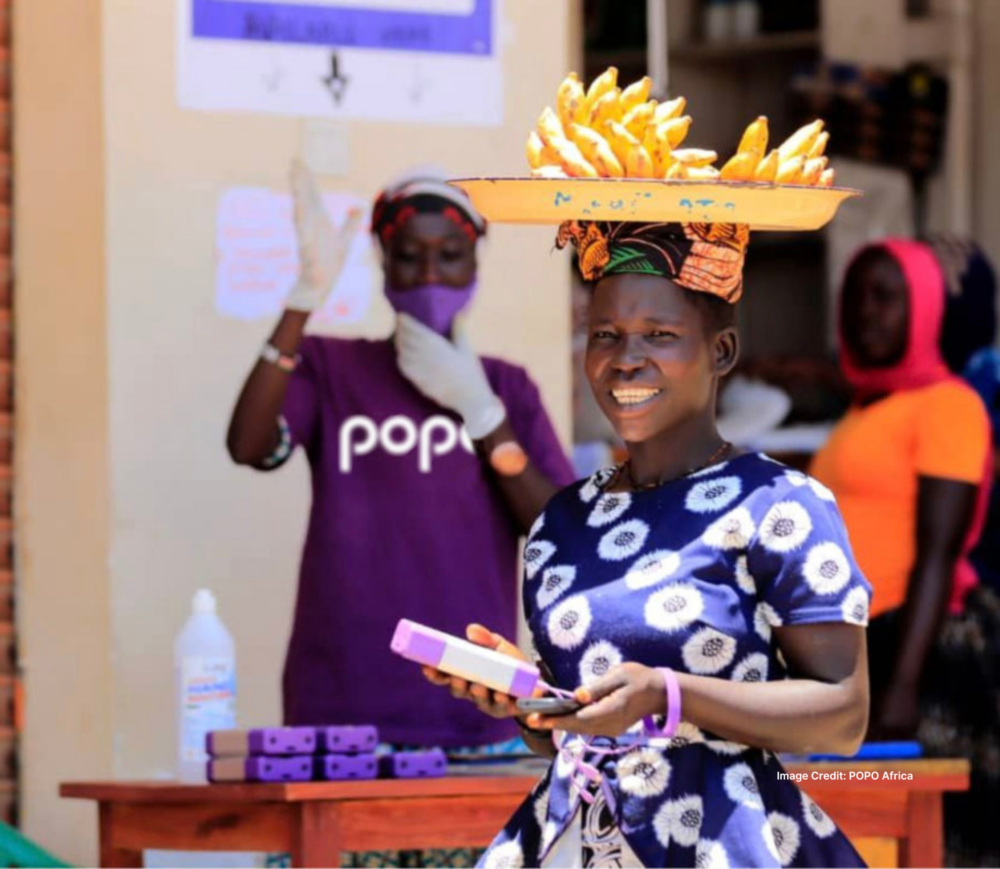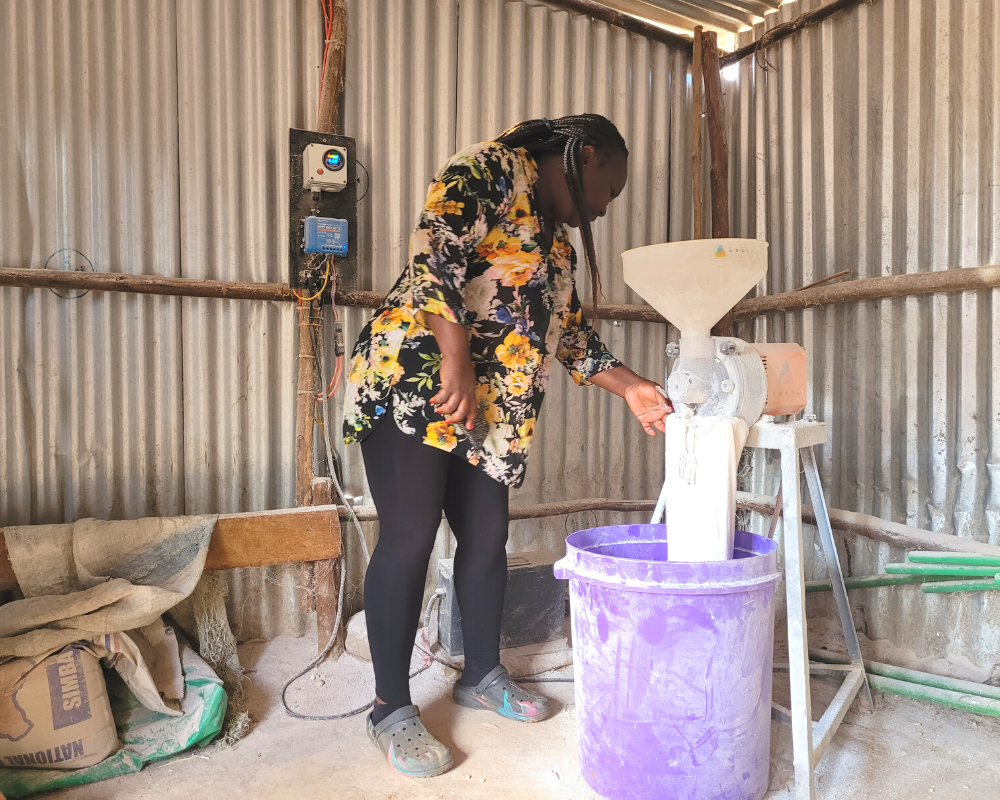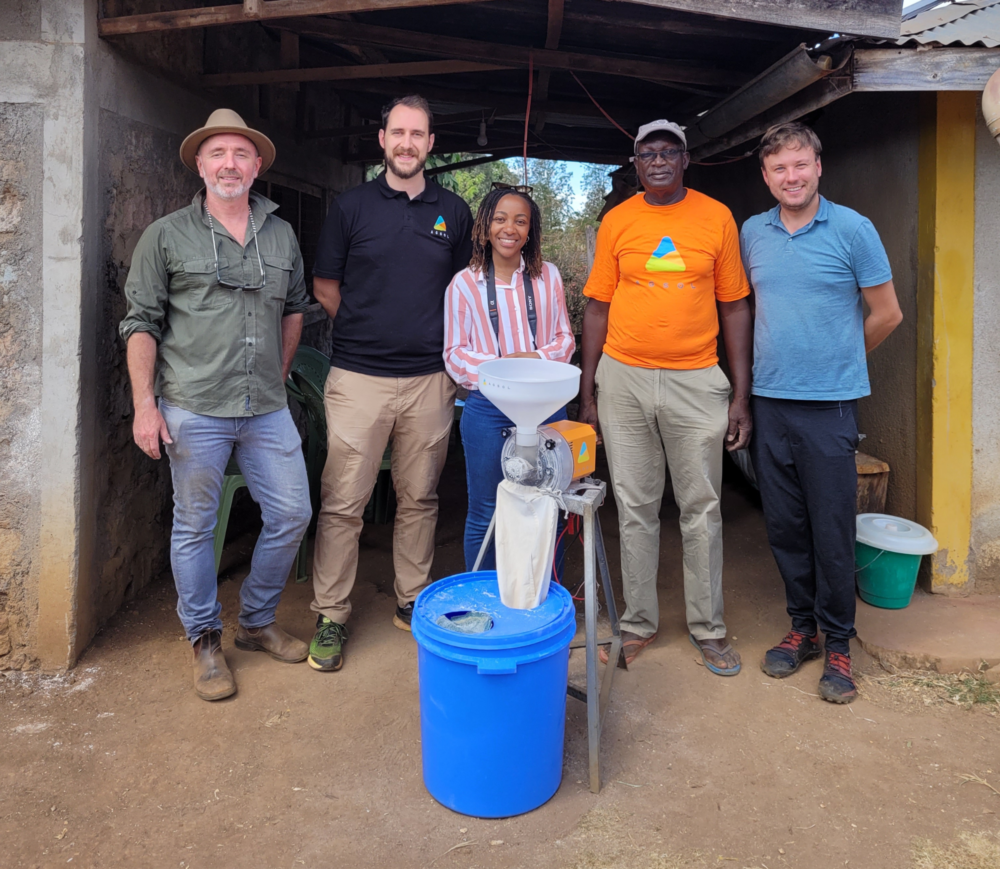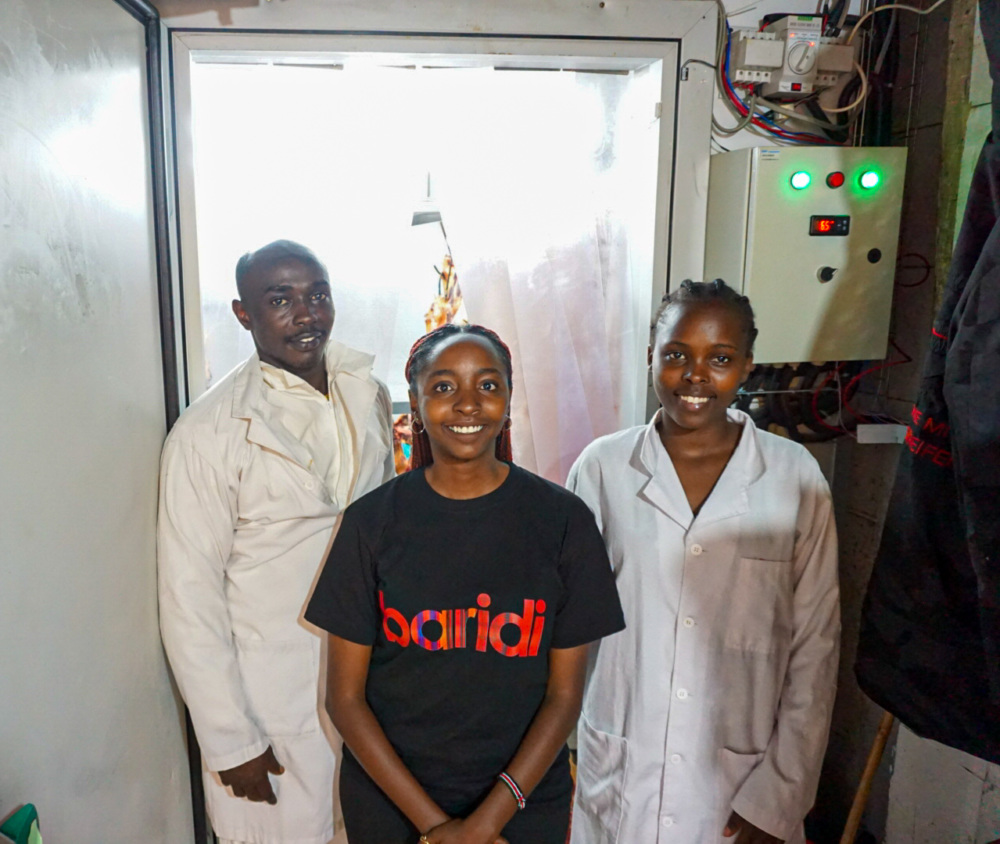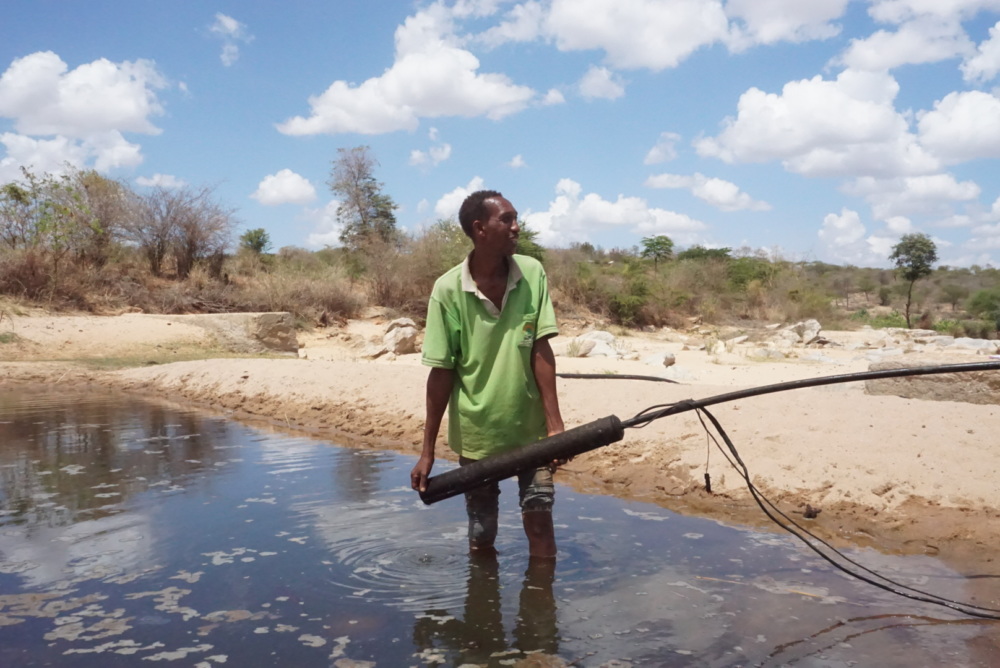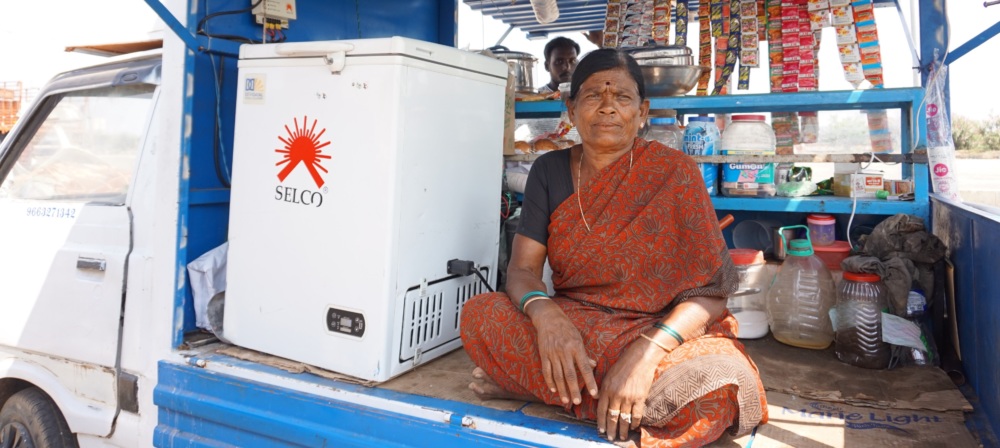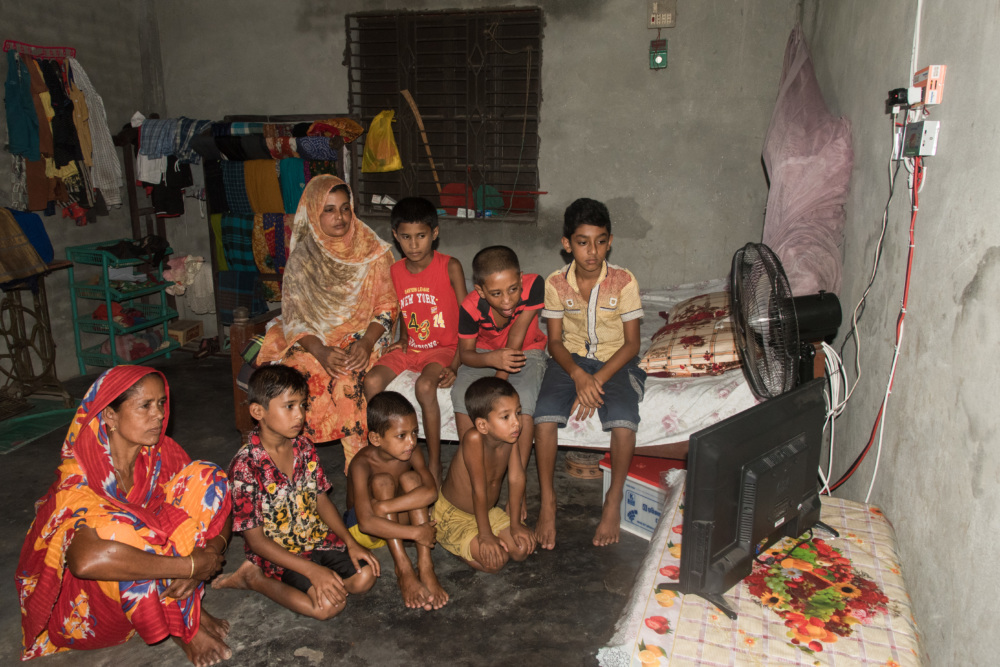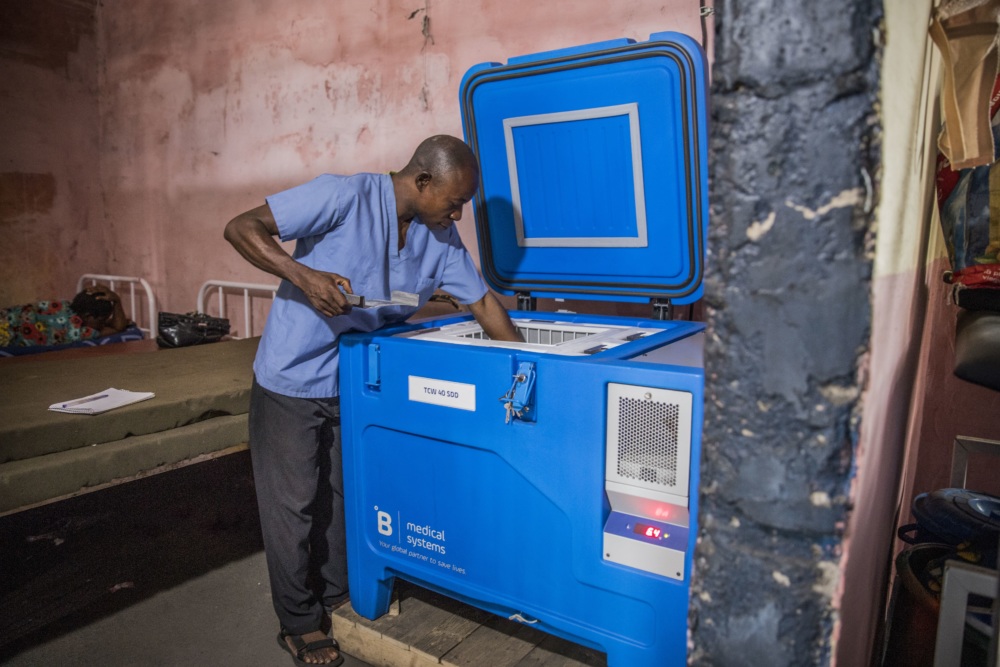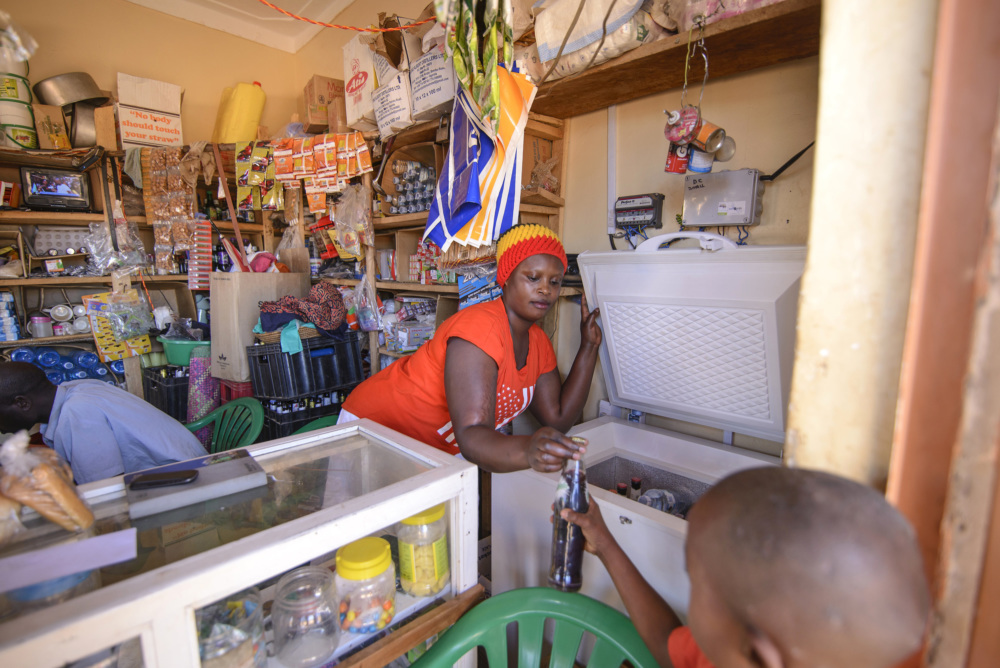Locally Grown Herbs for Global Markets: How A Kenyan Agribusiness Is Thriving On Off-Grid Cold Storage
CLASP, through Efficiency for Access, manages the Global LEAP Off-Grid Cold Chain Challenge (OGCCC)- an international competition to identify and promote the most energy-efficient, sustainable and cost-effective technologies designed for use by smallholder farmers and producers to meet cold storage requirements.
In a lead-up to announcing this year’s Global LEAP Off-Grid Cold Chain Challenge (OGCCC) finalists, a team from Efficiency for Access visited two Kenya-based field testing participants. The first visit was to a family-owned agribusiness situated in Thika, a bustling agricultural and industrial town about an hour’s drive from Nairobi. The team was eager to have a first-hand view of the Solar Cooling Engineering cold room in use and learn more about the owner’s experience.
On arrival in Thika town, we drove about 20 minutes into a lush residential estate where Kamau Mbarire and his wife, Jane, warmly welcomed us. The middle-aged couple jointly runs a profitable and growing herbs-for-export business, Jungle Harvest Limited, with Jane more actively involved in the day-to-day operations.

Jane Kamau holding a freshly cut basil plant in her greenhouse.
As the team explored the 0.75 acres of land under cultivation, Jane told us of her family’s nearly two-decade-long journey of establishing their now-thriving business. Since occupying the property, Jane’s family has tried their hand in various ventures, including dairy, pig and poultry farming and producing bananas, avocadoes, vegetables and strawberries. Of the initial pursuits, strawberries had been the most successful. Unfortunately, the success of the strawberries was short-lived — with wild monkeys in the neighbourhood stealing the ripe strawberries before she could gather them for sale. Deterred but not defeated, Jane erected a greenhouse where she would plant the strawberries away from the cheeky thieves. However, this solution did not last as the strawberries were not thriving under the canopy of the greenhouse. She also noted that the quality of the fruit did not match earlier harvests when the strawberries were planted under direct sunlight. This led to her exploring herb growing in 2018, which has proven less susceptible to the interference of the monkeys. The family now grows several herbs, including basil, coriander, dill, mint, rosemary, sage, tarragon and thyme.
Since settling on their cash crop of choice, the family shifted their sights to how best they could maximise the farm’s income generation. Following a recommendation from their son Francis (a Graduate in AgroEcosystems and Environment Management), Jane and Kamau chose to invest in an on-site cold storage facility in late 2021. They received financing for the Solar Cooling Engineering brand cold room through a loan which they are currently servicing.
Before purchasing the cold room, they had to hire refrigerated trucks to keep their produce fresh for transport. This was not a sustainable approach for them. It involved their workers spending long hours during harvest days to ensure all orders were sorted and packed in time for the scheduled pick up and delivery. It was also costly, with daily truck hires averaging USD $60–77. Now, with the cold room, Jane can store over 1000 kilograms of herbs for up to a week and take more time to sort and pack the product for transport to the airport.
“We have been using it day in, day out. It has really helped us because we are growing herbs that are very sensitive to high temperatures. We can harvest today, tomorrow and the next day, and the herbs remain fresh,” says Jane.
Jane and Kamau are no strangers to solar. They have been using a SunCulture solar water pump to irrigate their crops since 2015. “With solar, we are good to go anytime,” Jane remarked.

Dan, the Farm Manager, supervises two young ladies weeding newly planted thyme.
Since acquiring the cold room, Jane and Kamau’s herb capacity has grown from about 50–80 kgs to over 300kgs, nearly doubling their income from the farm. With their increased output, they now supply higher value export clients with larger orders instead of local clients who make small orders fetching lower returns. The family also appreciate that the precise temperature control of the cold room enables herb preservation in optimal conditions, meeting the high export quality standards
Not only has the cold room benefited Jane and Kamau’s bottom line, but it has also enabled them to empower their local community. Jane mentioned that, aside from Dan, the farm manager, she prefers to employ young single mothers on the farm. In this way, the young mothers can earn an income to support themselves and their children. Additionally, Jane distributes fresh vegetables to neighbouring households which she purchases in bulk and stores in the cold room, generating some extra income.
Jane and Kamau confirmed that the cold room has been a worthy investment and a means of further expanding their business. With the extra income brought about by the cold room, they are constructing a larger herb propagation shed and plan to lease land from their neighbours, extending their farm by about an acre. With these plans in place, they will grow more herbs, take up larger orders and expand the business.
“At least now with the cold room, we are able to do more propagation and grow as many crops as possible…It was a worth it investment.” – Jane Kamau.
—
About the GLOBAL LEAP Off-Grid Cold Chain Challenge (OGCCC)
The Global LEAP Off-Grid Cold Chain Challenge is an international competition that identifies and promotes the most energy-efficient, sustainable and cost-effective technologies designed for use by smallholder farmers and producers to meet cold storage requirements for fresh fruits, vegetables, fish, and dairy products.

